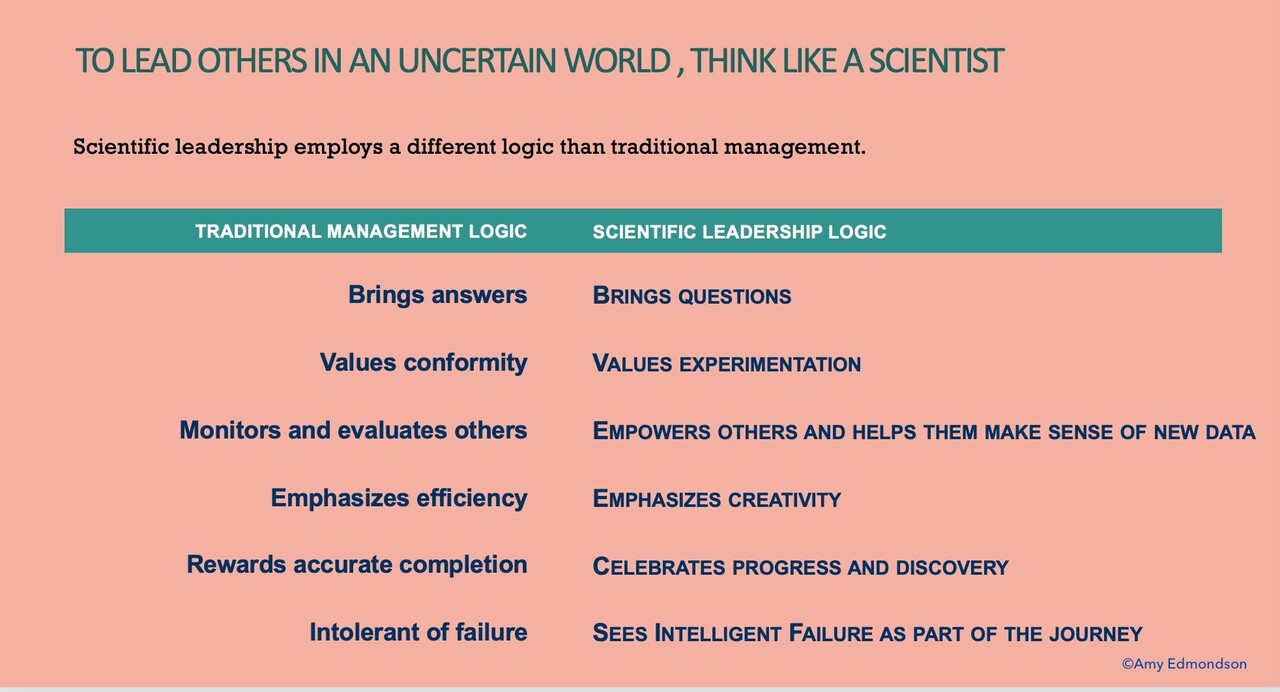Today’s leaders must learn to think like scientists

Today’s leaders must learn to think like scientists.
This does not mean you pick up a pipette and stop being a manager, dedicated to creating value for customers. Instead, thinking like a scientist means understanding that your job is to navigate uncertainty with curiosity and passion – so as to engage others in the inherently collaborative process of progress and discovery through which today’s knowledge work gets done.
Most managers are unaware of the quiet hold that industrial-era logic has on their thinking. They’re unaware of, or spend little time reflecting on, the deeply-rooted belief that they’re supposed to have the answers, control what others do, and be intolerant of failure. They fail to recognize the role of creativity in solving the many problems that invariably come up. This mindset can make it seem that keeping people a little bit afraid of you will help ensure that they hit their targets. But unfortunately, fear mostly just means that managers will be kept in the dark, unaware of what’s really going on. They are more likely to find themselves in a state of happy ignorance than in a state of helping to make sense of what’s going on and helping people solve the problems that inevitably occur.

When you actively shift your thinking to see your role as helping others find answers by conducting smart experiments and learning from what happens, other helpful leadership behaviors follow. These allow you build the psychological safety people need to team up, experiment, and solve problems.
The bottom line is this: In today’s complex, uncertain world, the traditional management logic that worked so well for top-down control of predictable processes is not only inadequate, it’s actually destructive to performance.
So pull up a chair alongside your favorite scientist and really take in the way she or he thinks. It’s instructive, I promise. I do it every day.